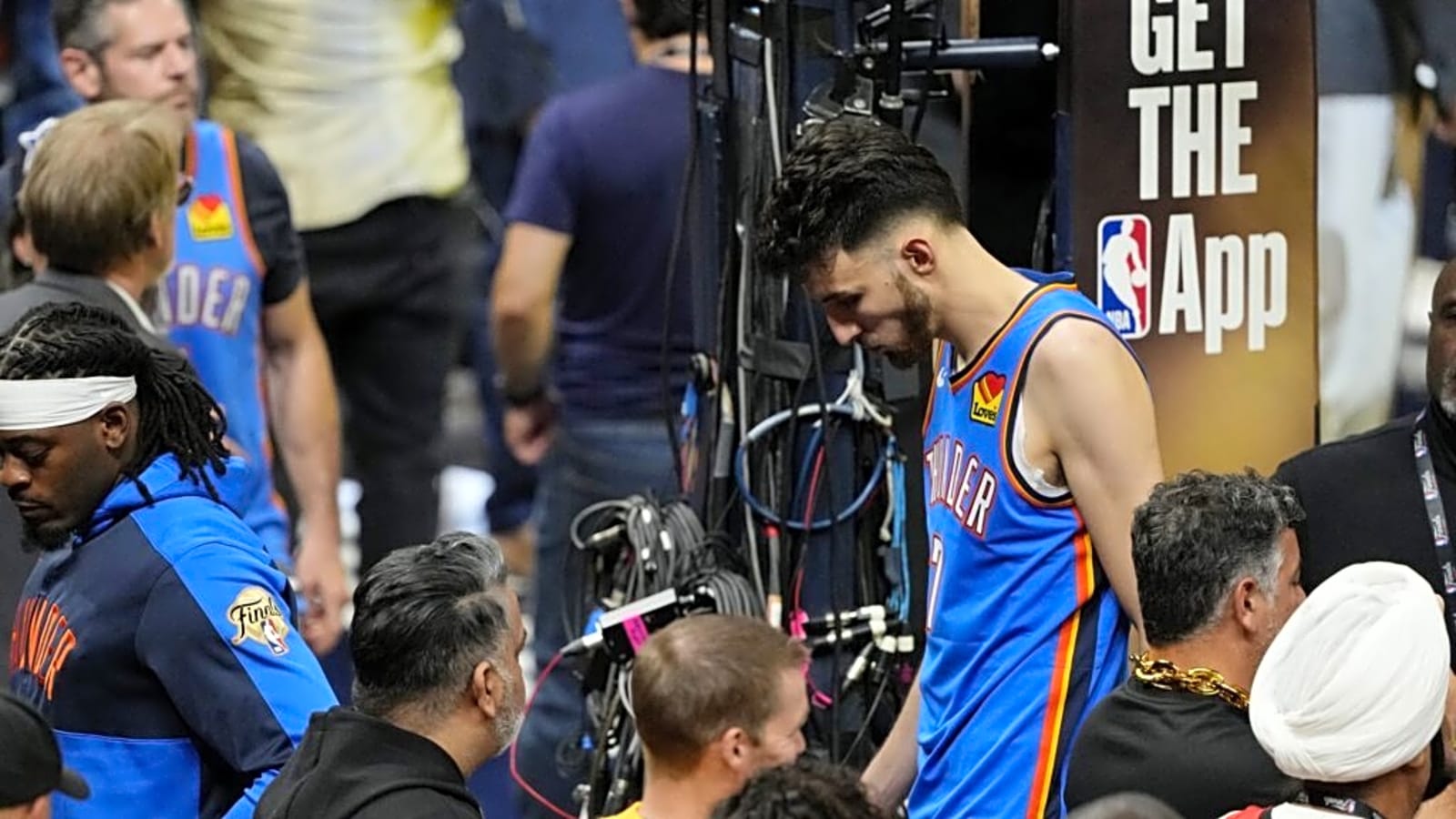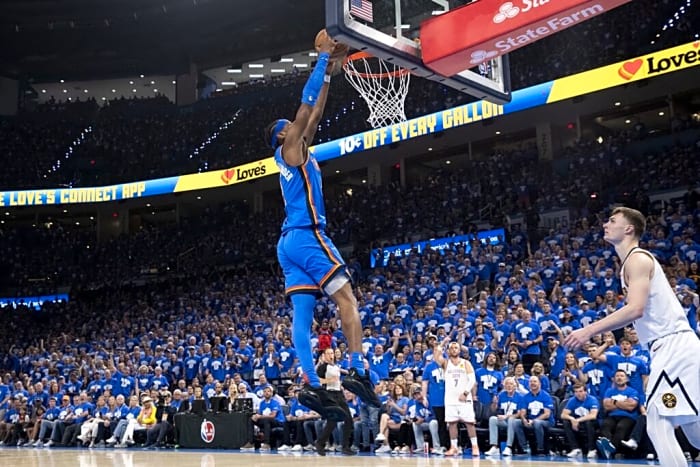
Relax, Thunder Fans! Your Team Wins The NBA Finals In The Script
Game 1: A Familiar, Heartbreaking Finish
In both series, the Thunder dropped Game 1 at home on last-second daggers.
Against Denver, it came after Chet Holmgren missed a free throw with seconds left. Aaron Gordon sprinted the floor, took a quick outlet, and buried a transition three with four seconds remaining, sealing a dramatic 121–119 win.
In the Finals opener, Indiana’s Tyrese Haliburton sank a 21-foot jumper with 0.3 seconds left—his team’s only lead of the night—in a 113–111 Pacers victory.
Both games ripped momentum from the Thunder and stunned their home crowd.
Game 2: Thunder Thunderously Respond

Oklahoma City didn’t let the opening losses shake their resolve. They fired back with emphatic wins.
Against the Nuggets, OKC exploded for 149 points—the highest total by any team this postseason—in a 149–106 blowout.
In Game 2 of the Finals, they dismantled Indiana 123–107. Shai Gilgeous-Alexander led the charge with 34 points on 52% shooting.
Both wins rebalanced the series and restored the Thunder’s offensive rhythm.
Game 3: Crunch-Time Collapse
Game 3 played out similarly across both matchups.
Versus Denver, OKC fell in overtime 113–104 after allowing Nikola Jokić to control the late moments.
Against Indiana, the Thunder surrendered a 12–4 fourth-quarter run, losing 115–109. In both games, Oklahoma City struggled to execute in the clutch.
These defeats exposed recurring late-game vulnerabilities.
Game 4: Road Defense at Its Finest
Game 4 was redemption on the road.
Facing Denver, the Thunder locked in defensively and held the Nuggets to their postseason-low 87 points in a 92–87 win.
In Indianapolis, they repeated the formula—stifling Indiana en route to a 111–104 win. Those are the least amount of points scored by the Pacers in the NBA Finals so far.
Each Game 4 was a showcase of elite defense and strategic composure, flipping home-court back to OKC.
Game 5: Contrasting Paths, Same Result
The Thunder took Game 5 in both series but with differing styles.
Against the Pacers, they won 120–109, leading for all but three minutes. Their offense moved fluidly, and the defense remained consistent.
The Game 5 win over Denver was grittier. Despite trailing for most of the game, OKC surged in the fourth and sealed a 117–109 win, despite holding the lead for less than a quarter in total.
Different rhythms, same impact—Thunder up 3–2.
Game 6: Hit With a Sledgehammer
The Thunder failed to close both series in Game 6.
In Denver, the Nuggets dominated nearly every quarter of a 119–107 win. Their stars delivered, and OKC never found their groove.
The Pacers did the same. Their 108–91 rout in OKC was total, with Indiana controlling from tip to final horn. It was the Thunder’s worst offensive game all season.
Both games highlighted the risks of complacency and the pressure of elimination games.
Game 7: History Suggests a Thunder Blowout—But Don’t Count On It
In the conference semis, the Thunder responded to their Game 6 setback by crushing Denver 125–93. It was a wire-to-wire clinic.
If the NBA Finals script holds, Thunder fans should expect another dominant showing on Sunday night. After all, OKC has won its two home Finals games after the opening loss by double digits.
Still, this is the Finals. The trophy is just 48 minutes away. A blowout is possible—but a dramatic, down-to-the-wire finish is far more likely.
Whether written in the stars or just pure coincidence, the Thunder are exactly where they want to be: one win away from NBA immortality. They just need to dust themselves up from the disappointment of game 6 and lock in for game 7.
More must-reads:
- Five numbers to know before Game 7 of NBA Finals
- Five reasons the Thunder will win the NBA title
- The 'Most points with zero assists in the NBA Finals' quiz
Breaking News
Trending News
Customize Your Newsletter
 +
+
Get the latest news and rumors, customized to your favorite sports and teams. Emailed daily. Always free!








